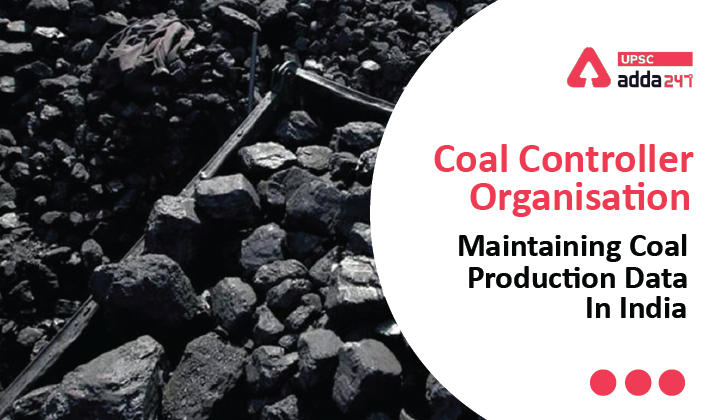Table of Contents
Coal Controller Organisation (CCO)- Relevance for UPSC Exam
- GS Paper 3: Indian Economy– Infrastructure- Energy, Ports, Roads, Airports, Railways, etc.
Coal Controller Organisation (CCO)- Context
- The coal stock at the power plants in the country has come under severe stress in the recent past.
- This has happened due to increased demand for power, less power generation by imported coal-based power plants, and some interruption in the supply of coal due to heavy rains.
Coal Controller Organisation (CCO)- Key Points
- About: Coal Controller Organisation (CCO), established in 1916, is one of the oldest offices in the Indian Coal sector.
- Coal Controller Organisation (CCO) is responsible for ensuring fair production and commercial transaction.
- Mandate: Coal Controller Organisation (CCO), Ministry of Coal collects and maintains coal production data of all private and public sector coal mines in the country.
- The information is collected on a monthly basis.
- Parent Ministry: Coal Controller Organisation (CCO) works as a subordinate office under the Ministry of Coal.
National Coal Gasification Mission
Coal Controller Organisation (CCO)- Key Responsibilities
- Inspection of collieries so as to ensure the correctness of the class, grade, or size of coal.
- To issue directives for the purpose of declaration and maintenance of grades of coal of a seam mined in a colliery.
- To act as the appellate authority in case of dispute between consumers and owner arising out of the declaration of grade and size of coal.
- To regulate the disposal of stock of coal or the expected output of coal in the colliery.
- Quality surveillance with respect to maintenance of grade, loading of coal in wagons/ trucks according to laid down procedures regarding grades and sizes.
- To grant opening / re-opening permission of coal mine, seam, or a section of the seam or to sub-divide a mine.
- Assessment and collection of excise duty levied on all raw coal raised and dispatched.
- Submission of monthly coal data to different ministries of Central and State Government, national and international organizations.




 TSPSC Group 1 Question Paper 2024, Downl...
TSPSC Group 1 Question Paper 2024, Downl...
 TSPSC Group 1 Answer key 2024 Out, Downl...
TSPSC Group 1 Answer key 2024 Out, Downl...
 Cabinet Ministers of India 2024, New Cab...
Cabinet Ministers of India 2024, New Cab...







